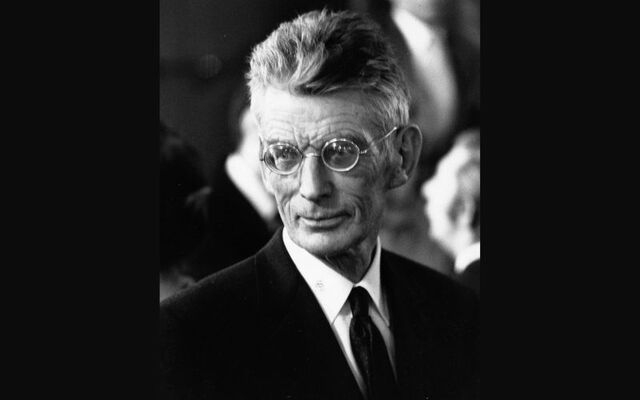Born on April 13, 1906, Samuel Beckett remains one of Ireland’s most enigmatic and influential literary figures. Best known for his groundbreaking play "Waiting for Godot", Beckett's work continues to captivate audiences with its stark beauty, existential themes, and razor-sharp wit. To celebrate his birthday, we’ve gathered some of his most memorable quotes—each a window into the brilliant, complex mind of a true literary genius.
Beckett was born in Foxrock, Dublin, in 1906, Beckett spent most of his adult life in France, writing in both English and French. He became one of the main writers associated with “The Theatre of the Absurd,” a selection of mainly European playwrights known for their particular plays of absurdist fiction.
Works within “The Theatre of the Absurd” explore what happens when human existence has no meaning or purpose, showing the progression from logical communication to the irrational and illogical, eventually leading to silence. Much of Beckett’s work focused on man’s failure to overcome absurdity in life, in particular.
Among his most famous works are "Murphy" (1938), "Waiting for Godot" (1953), "Krapp’s Last Tape" (1958), and "Happy Days" (1961).
He won the Nobel Prize for Literature in 1969, with the selection committee naming him "for his writing, which - in forms for the novel and drama--in the destitution of modern man acquires its elevation."
In celebration of one of the most influential writers of the 20th century and one of the last modernists, we’ve compiled some of his best quotes, often coupling a bleak, tragicomic outlook on human nature with black comedy and gallows humor.
Read more
Best Samuel Beckett quotes:
1. "The end is in the beginning and yet you go on."
2. "There's man all over for you, blaming on his boots the fault of his feet."
(Waiting for Godot, 1953.)
3. "No, I regret nothing, all I regret is having been born, dying is such a long tiresome business I always found."
(From an abandoned work.)
4. “We are all born mad. Some remain so.”
(Waiting for Godot, 1953.)
5. “I can’t go on. I’ll go on.”
(Waiting for Godot, 1953.)
6. “All of old. Nothing else ever. Ever tried. Ever failed. No matter. Try again. Fail again. Fail better.”
(Worstward Ho, 1983.)
7. “You're on Earth, there's no cure for that!”
(Endgame, 1957.)
8. “Birth was the death of him.”
(A Piece of Monologue, “Three Occasional Pieces”, 1982.)
9. "Any fool can turn a blind eye but who knows what the ostrich sees in the sand."
(Murphy, 1938.)
10. “Words are the clothes thoughts wear.”
*Originally published in December 2015, updated in April 2025.
Read more
Have we missed your favorite Samuel Beckett quote? Let us know in the comments section, below.




Comments